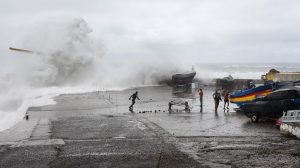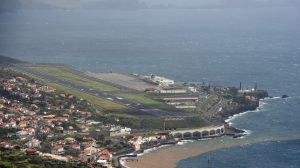The Doctor Ricardo Jorge National Health Institute (INSA), confirmed today the identification of the Delta variant in Madeira.
In a public report, the institute points out that, in the Madeira archipelago, this variant presents a relative frequency in the national sample in June of 13.2%. However, as you can see in the graphic in the image, the Alpha variant continues to be the predominant variant in the Region during June (69.8%), followed by the Gamma variant (11.3%). Less frequently identified are the Beta variant (3.8%) and others (1.9%).
To date, INSA has analysed 9,846 genome sequences of the new SARS-CoV-2 coronavirus, obtained from samples collected in more than 100 laboratories/hospitals/institutions representing 284 municipalities. Within the scope of genomic surveillance, 1087 sequences were obtained from the national sampling of June 2021, which took place between the 2nd and 15th of June (sampling still in the final stage). This sampling involved laboratories distributed throughout the 18 Districts of mainland Portugal and the Autonomous Regions of the Azores and Madeira, covering a total of 131 municipalities.
In view of the laboratory results obtained, this institute reports a galloping increase in the Delta variant in the relative frequency at national level, having presented an increase from 4.0% (May sampling) to 55.6% (June sampling).
“However, the variants distribution is still very heterogeneous between regions, varying between 3.2% (Azores) and 94.5% (Alentejo) (Table 1 and 2; Figure 2). Taking into account the trend observed between May and June, it is expected that this variant will become dominant throughout the national territory over the next few weeks.
“However, about 50% of these cases are restricted to just two local transmission chains, suggesting that their community circulation is still limited. Furthermore, the relative frequency of the Beta (B.1.351) and Gamma (P.1) variants remains low, with no upward trend in the latest samplings. “In particular, it is noteworthy that the Beta variant was detected at a frequency of 0.1% and in only two regions (Lisbon and Vale do Tejo and Madeira.”
Among the new sequences analyzed, the Alpha variant (B.1.1.7), initially associated with the United Kingdom, was detected by sequencing with a relative frequency of 40.2% in the June national sample, showing a strong reduction in frequency to national level (88.4% in May).
As of June, the INSA adopted “a new strategy for the continuous monitoring of the genetic diversity of the new coronavirus in Portugal,” which is based on weekly sampling on a national scale. This approach will allow for a better genetic characterization of SARS-CoV-2, since the data will be analyzed continuously, and there will no longer be time intervals between analyses.
So, it is definitely a case of observe social distancing, wear your mask, and obey all health and safety recommendations.


Samantha Gannon
info at madeira-weekly.com






